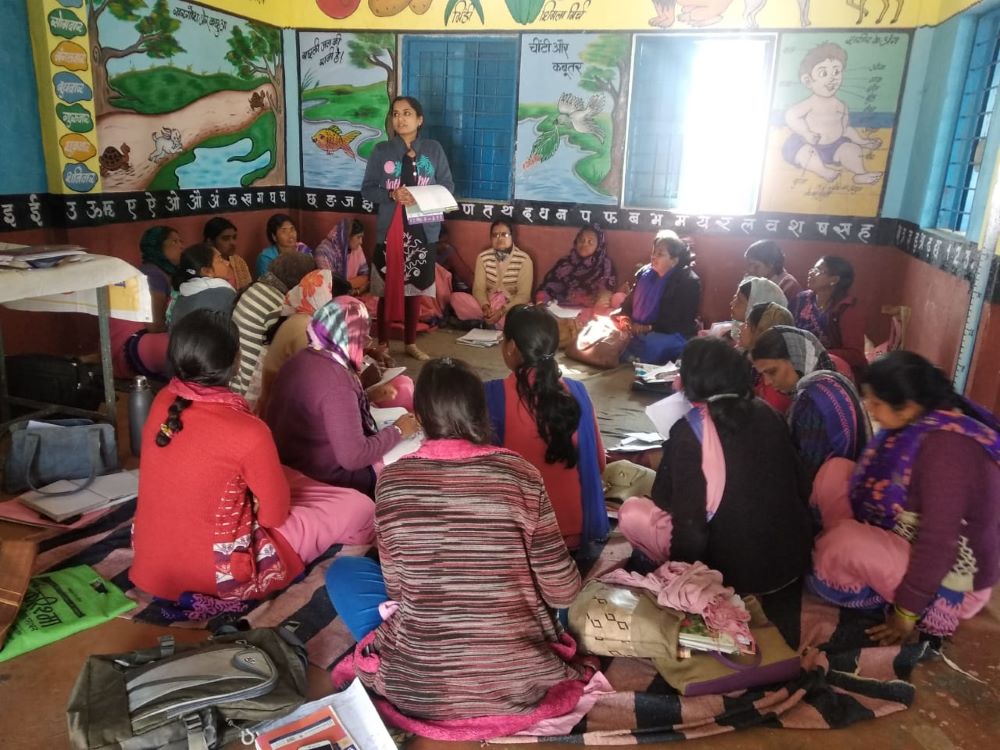Stories
Round-up: Five reasons periods need to be part of adolescent nutrition conversations
May 27, 2025
WP_Term Object
(
[term_id] => 49
[name] => Field Stories
[slug] => all-field-stories
[term_group] => 0
[term_taxonomy_id] => 49
[taxonomy] => news-category
[description] => Discover the personal stories of people whose lives have been impacted by better nutrition, and those working tirelessly to deliver it.
[parent] => 0
[count] => 180
[filter] => raw
)
From community events to training, Rachna Kulhade goes the extra mile to fight anaemia
Despite graduating with a degree in electronic and communications engineering, Rachna was determined to help India become a country were women and children no longer die from malnutrition.
Posted on March 6, 2020


Madhya Pradesh, INDIA – In college, Rachna Kulhade wanted to donate blood, but found out she was ineligible because she was underweight and anaemic. This news came as a shock but made her realize that most girls in her community were also likely suffering from anaemia, given their similar diets lacking in iron-rich foods.
This experience helped Rachna realize that she wanted to work in the social sector. Despite graduating with a degree in electronic and communications engineering, Rachna was determined to help India become a country were women and children no longer die from malnutrition.
Deciding to follow her dream, Rachna joined the Integrated Child Development Services (ICDS) department in Madhya Pradesh, which provides nutrition services to marginalized children, women and adolescent girls. She works as a supervisor in the Seoni district of Madhya Pradesh, training the Anganwadi workers (early education & health workers), helpers and female community leaders on various government-run programs designed to reduce malnutrition.
Iron deficiency is the most common and widespread nutritional deficiency in the world – affecting the very poor, especially women – and is the cause of about half of all cases of anaemia. In the Seoni district, 58 percent of women between the ages of 15 and 49 years suffer from anaemia.
Nutrition International trained Rachna to provide counseling for pregnant and lactating women on anaemia prevention, and she now uses that knowledge to train the Anganwadi workers. The counseling focuses on the impact of anaemia, the importance of iron and folic acid (IFA) supplementation, and consuming foods rich in iron and vitamin C. It also teaches the health workers to identify anaemia in women and motivate them to consume their IFA tablets, and maintain records of IFA supplementation.
Rachna often uses innovative methods to increase awareness about anaemia prevention. To demonstrate the importance of IFA supplementation, she once asked all the Anganwadi workers in her sub-district to have their haemoglobin levels tested, since lower than normal haemoglobin levels indicate anaemia. The tests revealed that 80 percent of them were anaemic. Upon learning this, the Anganwadi workers began taking IFA tablets and eating an iron-rich diet. Having seen first-hand the positive impacts that supplementation had on their health, they became even stronger advocates for iron and folic acid.
Taking advantage of the monthly Mangal Diwas, or Village Health and Nutrition Day, Rachna had auxiliary nurse midwives ask local women to get blood tests for detecting anaemia and then counsel anaemic women about its prevention and treatment. She also organized the Poshan Maah, or Nutrition Month, by coordinating many local school and other community events to raise awareness about anaemia prevention.
Today, Rachna recognizes the burden of anaemia in the Seoni district and understands the dire need to educate her community about this condition and its prevention. Through her dedicated efforts, the number of women and adolescent girls in her sub-district taking IFA supplements has improved. Nearly 84 percent of adolescent girls and almost all girls who do not attend school have begun taking IFA tablets. Slowly but steadily, Rachna is helping to realize her vision of India as a nation free of malnutrition.